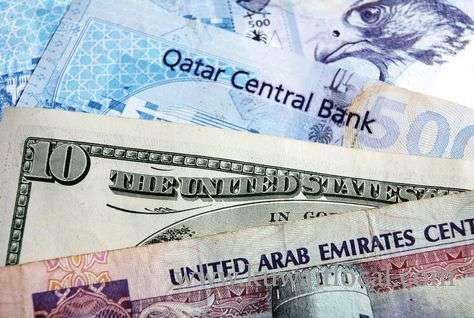Latest News
- No Additional Side Effects Found Of COVID-19 Vaccines In Kuwait
- Kuwait, Oman Sign A Nurse Training Agreement
- Saudi Arabia And Kuwait Share The Durra Field
- Citizen Detained For Alleged Involvement In Terrorist Plot
- Student Beaten By Teacher, Insulted
- MoH Issues New Drug Pricing Regulations
- On International Labor Day, Kuwait Affirms Its Commitment To Wor...
- MEW's Water & Power Plants Reach 95% Kuwaitization
- Efforts Are Being Made By Kuwait To Cut Subsidies' Waste
- Mobile ID No Longer Displays 'vaccination Status'
- Kuwait Imposes 5,000 Dinar Fines For Unlicensed Or Unrenewed Ads
- National Military Service Authority Delegation Explores Collabor...
Average Gulf Govt Deficit Exceeds 11 Pc Of Gdp Amid Oil Price Fall

Gulf governments collectively registered a budget deficit of more than 11 percent of gross domestic product (GDP) in 2016 due to low oil prices, according to PwC.
Its latest Middle East research note said Oman was hardest hit with a deficit exceeding 20 percent of GDP last year while Kuwait coped best with the oil price slump, resulting in a deficit of 3.6 percent of GDP.
According to PwC economists, 2016 was probably the low point for oil exporters including most of the Gulf countries. They added in the report that economic prospects in 2017 should improve, helped by stronger oil prices over the year.
"Nevertheless, oil prices still remain well below break-even levels for most oil exporters and fiscal reform and deficit financing will continue to be key policy priorities in 2017 and beyond," PwC noted.
PwC also said fiscal reforms in the Gulf region are hard to do and even harder to sustain - energy subsidies were cut across the board (resulting in a GCC average of 2.8 percent inflation).
"Popular backlash against rising petrol prices has caused some governments to reconsider this policy and yet many more difficult reforms are in the pipeline," the report said.
It added that while this environment creates challenges for business, such as managing new taxes, the report identified a growing number of opportunities, particularly as the major Gulf economies look for alternative sources of financing. This includes the debt markets and privatisation initiatives.
Richard Boxshall, PwC Middle East’s economist said: “The flurry of activity in debt markets, privatisation and PPPs has only just got started and should generate interesting business opportunities in the next few years.
"Investors can expect to see GCC economies make increasing use of international debt markets and to work harder to attract foreign direct investment in the next few years.”
He added: “Foreign investors will want to see that governments have credible and committed plans to control the public finances. Introduction of VAT and excise tax in the GCC is an early opportunity for GCC governments to signal to international investors their commitment to fiscal reforms.”
The issue also highlights the growth potential of Egypt and Saudi Arabia, viewed by PwC as “pockets of opportunity” in the region.
Trending News
-
 Expat Residency Law Amended By Kuwait Ministerial...
20 April 2024
Expat Residency Law Amended By Kuwait Ministerial...
20 April 2024 -
 Ministry Announces Separate Time For Amnesty Seeke...
21 April 2024
Ministry Announces Separate Time For Amnesty Seeke...
21 April 2024 -
 The Ministry Connects With Violators Of Residency...
23 April 2024
The Ministry Connects With Violators Of Residency...
23 April 2024 -
 Two Expats Are Arrested For Stealing From Salmiya...
17 April 2024
Two Expats Are Arrested For Stealing From Salmiya...
17 April 2024 -
 Work Permits Will Be Issued For One Year Under The...
27 April 2024
Work Permits Will Be Issued For One Year Under The...
27 April 2024 -
 AstraZeneca Admits Covid Vaccine Can Cause Rare Si...
29 April 2024
AstraZeneca Admits Covid Vaccine Can Cause Rare Si...
29 April 2024 -
 3 Expats Caught In Salmiya With 213 Bottles Of Loc...
23 April 2024
3 Expats Caught In Salmiya With 213 Bottles Of Loc...
23 April 2024 -
 Temperature Increases Cause Electricity Load Index...
21 April 2024
Temperature Increases Cause Electricity Load Index...
21 April 2024 -
 Al-Nuer Festival Celebrates Kuwaiti Agriculture Wi...
22 April 2024
Al-Nuer Festival Celebrates Kuwaiti Agriculture Wi...
22 April 2024 -
 Peak-time 'cut-offs' Raise Fears Of An Electricity...
22 April 2024
Peak-time 'cut-offs' Raise Fears Of An Electricity...
22 April 2024












Comments Post Comment